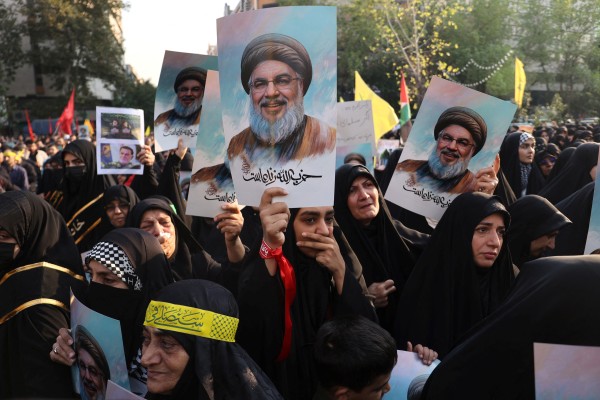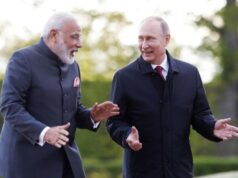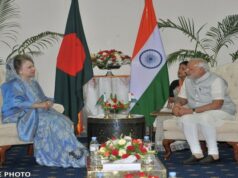
Sept 27, 2024 is claimed by some quarters in Israel as the day of redemption for the military, the external intelligence agency Mossad and the domestic intelligence agency Shin Bet. By killing Hezbollah chief Hassan Nasrallah on that day, they were able to substantially wash off the shame of October 7, 2023, when the Hamas attack triggered the Gaza War.
The purists will sniff. Hezbollah is not Hamas, they would point out, and while its military commander Ismail Haniyeh was killed in a spectacular fashion in Tehran on July 31, its political chief Yahya Sinwar still remains at large. Nor is there any word on the remaining hostages (assuming they are still alive).
“But to many Israelis (possibly even Arabs), Mossad may have regained its halo of invincibility, although what the country has gained by killing Hassan Nasrallah, a relative moderate who kept the zealots under control, is not clear,” says Mahesh Sachdev, a former diplomat with considerable experience of the region.
He points out that Haniyeh was chief Hamas negotiator in the peace talks, yet the Israeli deep state saw him as a fair target and killed him (although Israel has never claimed that it did so).
Now with Sinwar in charge of Hamas, the room for negotiations would have shrunk considerably. The war will probably drag on, and the hostages will remain in limbo.
But is this what Israel’s deep state wants? A perpetual state of conflict that will degrade and obliterate any further thinking about the “Two State Solution” (an Israeli and Palestinian state side by side, living in peace)?
A former diplomat who served in Tel Aviv says it is always difficult to discern the intentions of any deep state, let alone one such as Israel. But the longer the conflict drags on and people remain displaced or scattered, it gives certain parties more room to manoeuvre.
Witness Israeli Prime Minister Netanyahu’s address, in English, to the people of Iran, on Monday. It’s a moot point how many Iranians understand that language, but the intention was to sow doubt and divisions.
Every day, [the Islamic regime’s] puppets are eliminated.
Ask Mohammed Deif. Ask Nasrallah.
There is nowhere in the Middle East we cannot reach.
There is nowhere we won’t go to protect our people,”
says PM Netanyahu in a speech to Iran’s people. 🇮🇱 pic.twitter.com/Ag9RL6NcEo
— Visegrád 24 (@visegrad24) September 30, 2024
It’s no secret that sections of the Iranian population want the clerical regime to focus more on domestic issues, such as the economy and improving living standards, rather than foreign adventures.
“That doesn’t mean Netanyahu’s words would have resonated with them,” says Ambassador Sachdev. “The post-Islamic Revolution generation has been taught to demonise Israel as the ‘Little Satan’, as opposed to Big Satan, the US of A).”
So when Netanyahu waxed eloquent: “Iran’s tyrants don’t care about your future … with every passing moment the regime is bringing you, the noble Persian people, closer to the abyss,” the mullahs would have probably ended up with more Iranians on their side.
Ambassador Sachdev also believes that by degrading Hezbollah’s armed wing and leaving the political wing untouched, Israel may be seeking to engineer a split in the movement.
“Media reports about an ‘Iranian mole’ leaking the report about Nasrallah’s presence in the bunker, could be Israeli intelligence at work,” Sachdev says, “It seeks to build on the fact that traditionally, Arab movements from the PLO downwards, have seen people break away to form their own splinter outfits. And some of these outfits, since they cannot take on Israel, delve into local politics that brings them into conflict with host Arab governments.”
The other ploy is positioning Israel as the “shield” of the Sunni Arab regimes in the Gulf, against Shia Iran. But no sheikh worth his oil would be foolish enough to embrace the Jewish shield, his people will not spare him.
Which means the rest of the world can only continue to wait and watch, and pray that the machinations of the Arab and Israeli Deep States don’t spiral into something they can no longer control.
In a career spanning three decades and counting, Ramananda (Ram to his friends) has been the foreign editor of The Telegraph, Outlook Magazine and the New Indian Express. He helped set up rediff.com’s editorial operations in San Jose and New York, helmed sify.com, and was the founder editor of India.com.
His work has featured in national and international publications like the Al Jazeera Centre for Studies, Global Times and Ashahi Shimbun. But his one constant over all these years, he says, has been the attempt to understand rising India’s place in the world.
He can rustle up a mean salad, his oil-less pepper chicken is to die for, and all it takes is some beer and rhythm and blues to rock his soul.
Talk to him about foreign and strategic affairs, media, South Asia, China, and of course India.




